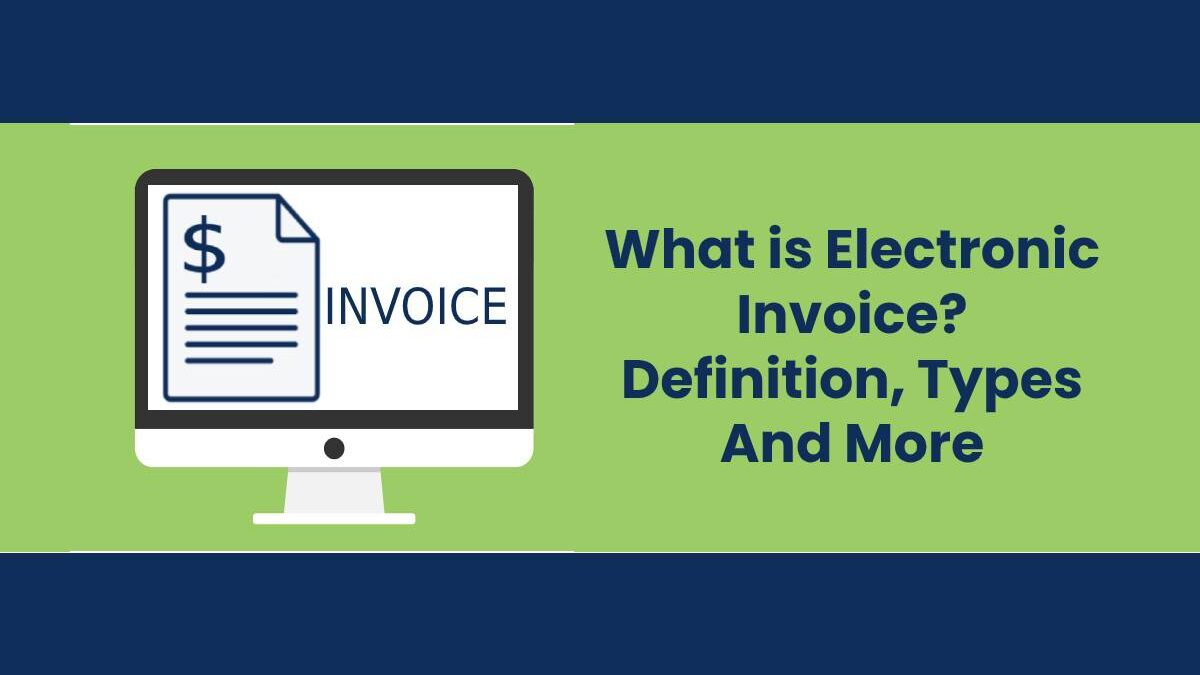Definition Electronic Invoice
An electronic invoice is an invoice; it has the same legal effects as a paper invoice. Remember that an invoice is proof of the delivery of goods or the provision of services.
An electronic invoice is an invoice that issues and receives in electronic format.
An electronic invoice is subject to the consent of its recipient. The electronic invoice, therefore, is a legal alternative to the traditional paper invoice.
You can make PDF invoices using invoice generator tool.
Also read: What is Metadata? – Definition, Examples, Benefits, And More
Legal Regulations
Invoices, in general, and electronic invoices, in particular, are regulated by Royal Decree 1619/2012, of November 30, which approves the Regulation that regulates billing obligations. This Regulation establishes the rules that invoices must comply with, both on paper and electronic.
It regulates aspects such as
- Obligation to issue the invoice;
- Complete or ordinary, and simplified invoice;
- Issue by third parties;
- Invoice content;
- Specificities of the electronic invoice;
- Other invoice includes a summary, duplicates, corrective;
- Special regimes;
- Legibility, authenticity, and integrity;
- All invoices, whether electronic or paper, must guarantee the readability of the invoice;
- Weather, the origin of the invoice, is authentic;
- Last but not least, the integrity of the content of the invoice guarantee that its content has not modified.
In the case of the Electronic Invoice
Readability depends on the computer program that creates or receives it. Authenticity and integrity are available in various ways:
- By advanced electronic signature, based on a recognized certificate.
- Through the EDI electronic data exchange.
- Through the usual management controls of the taxpayer’s business or professional activity, provided that they create a reliable audit trail that establishes the necessary connection between the invoice and the delivery of goods or services that it documents.
Types
Two fundamental types of the electronic invoice should be distinguished: the electronic invoice with a structured format and the electronic invoice with an unstructured format.
Both are electronic documents transmitted through electronic communication networks, such as the Internet. The difference is that the structured format facilitates its automated treatment while the unstructured one does not facilitate it.
Invoices in a structured format
Invoices in structured format contain data and can get automatically generated by the issuer’s computerized billing systems and can be processed in an equally automated manner by the receiver’s payment and accounting computer systems. Examples of structured formats are those that use the XML language (such as UBL or Facturae), EDIFACT, etc.
Invoices in an unstructured format
Invoices in unstructured format consist essentially of an image, which implies that their processing to enter into the recipient’s computer systems requires manual intervention or an expensive process that is not usually fully automated, such as optical character recognition ( OCR). Among these, we have scanned paper invoices and PDF files.
Advantages
Specific benefits of electronic invoicing are:
- Shorten processing cycles, including collection;
- Reduce human error;
- Eliminate printing and postage costs;
- Facilitate faster, more agile and easier access to stored invoices;
- Dramatically reduce the space needed for storage;
- Improve customer service; eliminate the consumption of paper and its transportation, with the consequent positive effect on the environment;
- Facilitate the fight against fraud;
- Subsume the invoice in business computer systems, dramatically improving its management;
- Finally, this is the most important thing, to contribute to the modernization of the economy and the development of the Information Society.
Also read: What is Developer? – Definition, Necessity, Services And More
Kamran Sharief
Related posts
Sidebar
Recent Posts
The Rise of Legal Tech Startups: What Law Firms Need to Know
Introduction The legal profession, often rooted in tradition and resistant to change, faces a technological revolution. Legal tech startups are…
Shiba Inu vs. Dogecoin: The Battle of the Meme Coins
In the realm of cryptocurrency, there has been an ongoing battle between two popular meme coins, Shiba Inu and Dogecoin….




Review What is Electronic Invoice? – Definition, Types, And More.